
Now Voyager is the debut solo studio album by British singer-songwriter Barry Gibb, the member of the Bee Gees. It was released on 17 September 1984 by Polydor Records in the UK and MCA Records in the US. Now Voyager was recorded sometime around the year at Criteria Studios in Miami, Florida, and Ocean Way Recording in Hollywood, California, and was produced by Gibb and Karl Richardson. It contains his biggest solo hits, "Shine, Shine" and "Fine Line". The album also included the Olivia Newton-John duet "Face to Face", which was released as a promo single. Gibb co-produced the album with Karl Richardson, who had been working with the Bee Gees since 1975. The front cover photograph was taken by Alex Henderson at Victoria Baths, Manchester.

Spirits Having Flown is the fifteenth album by the Bee Gees, released in 1979 by RSO Records. It was the group's first album after their collaboration on the Saturday Night Fever soundtrack. The album's first three tracks were released as singles and all reached No. 1 in the US, giving the Bee Gees an unbroken run of six US chart-toppers in a one-year period and equaling a feat shared by Bing Crosby, Elvis Presley, and The Beatles. It was the first Bee Gees album to make the UK top 40 in ten years, as well as being their first and only UK No. 1 album. Spirits Having Flown also topped the charts in Australia, Canada, Germany, New Zealand, Sweden and the US. The album has sold more than 20 million copies worldwide.
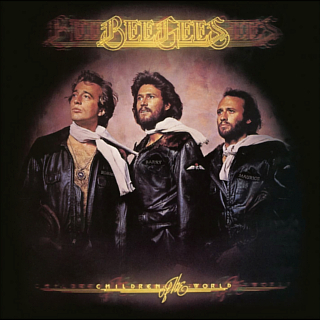
Children of the World is the fourteenth studio album by the Bee Gees, released in 1976 by RSO Records. The first single, "You Should Be Dancing", went to No. 1 in the US and Canada, and was a top ten hit in numerous other territories. The album was re-issued on CD by Reprise Records and Rhino Records in 2006. This was the first record featuring the Gibb-Galuten-Richardson production team which would have many successful collaborations in the following years.

Living Eyes is the sixteenth studio album by the Bee Gees, released in 1981. It was the band's final album on RSO Records, which would be absorbed into Polydor and subsequently discontinued. The album showcased a soft rock sound that contrasted with their disco and R&B material of the mid-to-late 1970s; having become a prominent target of the popular backlash against disco, the Bee Gees were pressured to publicly disassociate from the genre.

Albhy Galuten is an American technology executive and futurist, Grammy Award-winning record producer, composer, musician, orchestrator and conductor. He has numerous inventions and has produced 18 number 1 singles with songs and albums selling over 100,000,000 copies. He has won two Grammy Awards, a Dramalogue award, and a BMI Citation of Achievement.
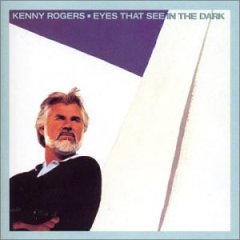
Eyes That See in the Dark is the fifteenth studio album by American country singer Kenny Rogers, released by RCA Records in August 1983.
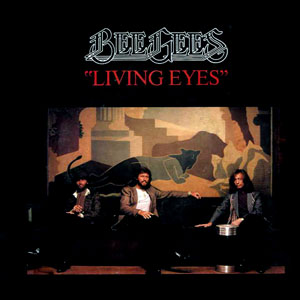
"Living Eyes" is a power ballad recorded by the Bee Gees and was released in November 1981 as the second single and title track off the LP of the same name. It was written by Barry, Robin & Maurice Gibb. The sound of this single was closer musically to the rest of the album than its predecessor, "He's a Liar".

Heartbreaker is a studio album by American singer Dionne Warwick. It was released by Arista Records on September 28, 1982, in the United States. Her fourth album with the label, it was largely written by the Bee Gees, and produced by band member Barry Gibb along with Karl Richardson and Albhy Galuten; Gibb and Galuten also served as musicians on the album. Warwick recorded the songs on Heartbreaker during the spring of 1982.
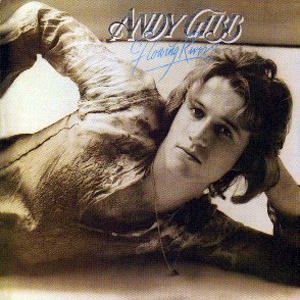
Flowing Rivers is the debut studio album by English singer-songwriter Andy Gibb. The album was produced by Albhy Galuten and Karl Richardson, with Barry Gibb on two tracks. It was released in September 1977 on RSO. Flowing Rivers was re-released by Polydor Records in 1998 in CD version.
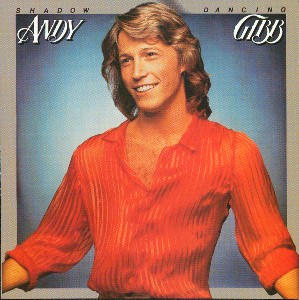
Shadow Dancing is the second studio album by English singer-songwriter Andy Gibb, released by RSO Records in June 1978 in the United States and September 1978 in the United Kingdom. It was Gibb's highest charting album in some countries including America and in Canada. This LP was his only album to chart in the UK. Four singles, including the three US Top 10 singles, were released from the album.
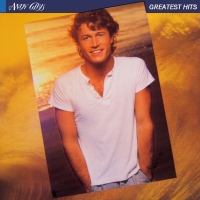
Andy Gibb's Greatest Hits was the first compilation album by Andy Gibb. It was released in 1980. Aside from the previous singles it also contains three new songs being "Time Is Time", "Me " and "Will You Love Me Tomorrow", the latter sung together with P. P. Arnold.
"Rest Your Love on Me" is a country ballad performed by the Bee Gees and written and sung by Barry Gibb. It was the B-side of the US No. 1 hit "Too Much Heaven". Andy Gibb recorded the song as a duet with Olivia Newton-John for his 1980 album After Dark.

"(Our Love) Don't Throw It All Away" is a song penned by Barry Gibb and Blue Weaver and recorded by the Bee Gees in 1977 on the Saturday Night Fever sessions but was not released until Bee Gees Greatest (1979). A different version was released in September 1978 by RSO Records as the third single by Andy Gibb from his second studio album Shadow Dancing. His version was produced by Gibb-Galuten-Richardson.

"Why" is a song written by Barry Gibb and composed by Andy Gibb, fourth and last single released on the album Shadow Dancing. Released as a single in September 1978 by RSO Records around the same time as "(Our Love) Don't Throw It All Away". It was his only single that was not charted in any countries. The song was produced by Gibb-Galuten-Richardson.
"Save Me, Save Me" is a song written by Barry Gibb and Albhy Galuten in 1977. It was recorded by the group Network from New York City. The flipside was "Not Love at All". This song is the first track credited to Gibb and Galuten. George Bitzer was hired to play synthesizers and keyboards and he later worked with Barry and Andy Gibb. It was recorded in Criteria Studios, Miami around April 1977, same session as Samantha Sang recorded her well-known hit "Emotion". The song was issued in Netherlands and the B-side was "Holly". John Vinci on vocals Richie Cerniglia as "Richie C" on guitar Mike Maniscalco as "Mike Coxton" on keyboardHowie Blume as "Howard Davidson" on bass Butch Poveromo as "Jean Paul Gaspar" on percussion, Mike Ricciardella — drums and George Bitzer on keyboard, synthesizer.
"Paradise" is a pop ballad recorded by the Bee Gees included on the 1981 album Living Eyes. It was later released as a single in Netherlands and Japan with "Nothing Could Be Good" as the B-side. It was included on the 1983 greatest hits album Gold & Diamonds.
"You and I" is a song written by Barry, Robin and Maurice Gibb and was recorded and performed by Kenny Rogers from his 1983 album Eyes That See in the Dark. Despite not being released as a single, it has been played on the radio, becoming one of Rogers' most popular songs. Barry Gibb sings background vocals on the intro, chorus, interlude. The performer of the song sometimes credited to 'Kenny Rogers and the Bee Gees' because Barry used his falsetto.
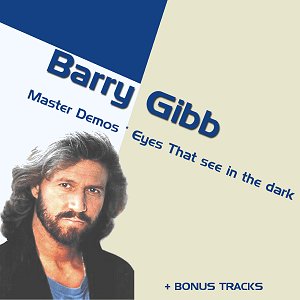
The Eyes That See in the Dark Demos is an album of demos by Barry Gibb created for the production of Kenny Rogers' 1982 album Eyes That See in the Dark. Originally circulating as a bootleg, the collection saw a legitimate release on iTunes in October 2006.

The Guilty Demos is a demo version of the Barbra Streisand album Guilty by Barry Gibb. Not intended for release tapes of these had been circulating among fans before bootleg CDs started emerging. In October 2006 Gibb made these available through iTunes.
Gibb-Galuten-Richardson were a British-American record producing team, consisting of Bee Gees founding member and British singer-songwriter Barry Gibb, American musician and songwriter Albhy Galuten and American sound engineer Karl Richardson. They produced albums and singles for Andy Gibb, Samantha Sang, Frankie Valli, Teri DeSario, Barbra Streisand, Dionne Warwick, Kenny Rogers, Dolly Parton and Diana Ross.















